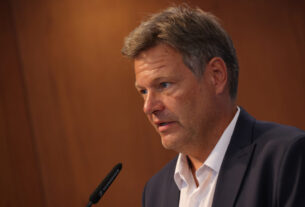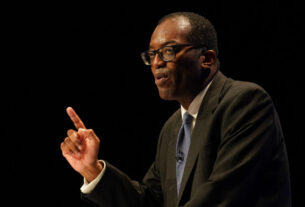The European Central Bank expects the euro area economy to contract in the last quarter of this year and in the first quarter next year, its president said Monday.
That fits the definition of a technical recession, which is two consecutive quarters of negative growth.
“It is difficult to predict what the real outcome will be in 2023 but it will certainly be a difficult year of which the first quarter will most likely be negative, as we believe the last quarter of 2022 will likely be negative as well,” ECB President Christine Lagarde told the Economic and Monetary Affairs Committee of the European Parliament.
The ECB’s September estimates currently predict euro area growth to remain positive in 2023 albeit low at 0.9 percent, but it also foresees an adverse scenario in which the euro area contracts by -0.9 percent.
One of the conditions for the adverse scenario include the further reduction in Russian gas supply, which has already taken place, Lagarde said. “My estimate is … that we are probably somewhere in between,” she said.
ECB Chief Economist Philip Lane had hinted to the possibility of a technical recession: “If we think our base case is to barely grow, a technical recession, falling into a mild recession cannot be ruled out,” Lane said earlier this month.




